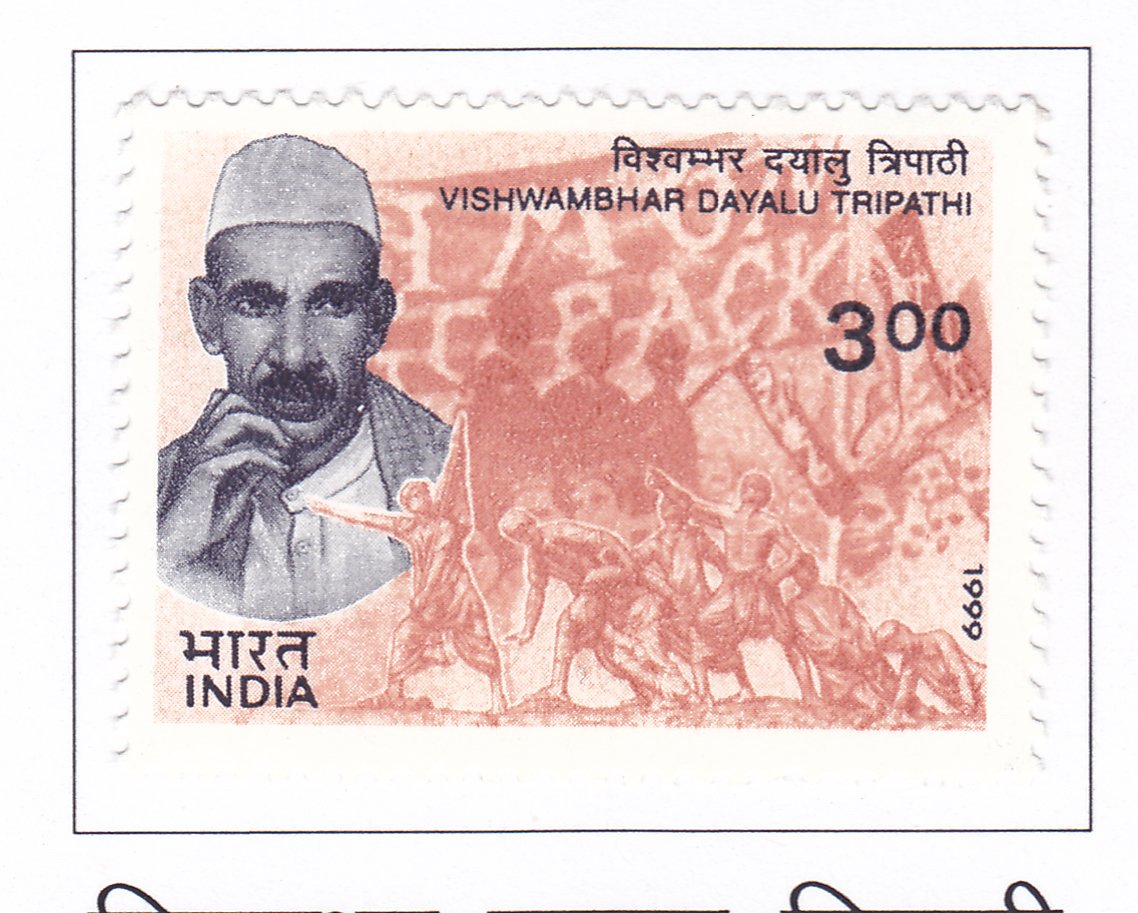Vishwambhar Dayalu Tripathi (1899-1959)

Technical Data
| Stamp Set | India's Struggle for Freedom |
|---|---|
| Date of Issue | August 15, 1999 |
| Denomination | Rs. 3 |
| Quantity | 400,000 |
| Perforation | comb 13½ x 13 |
| Printer | Security Printing Press, Nashik |
| Watermark | No Watermark |
| Colors | Multicolor |
| Catalog Codes |
Michel IN 1697 Stamp Number IN 1756 Yvert et Tellier IN 1464 Stanley Gibbons IN 1859 |
| Themes | Famous people | Headgear | Lawyers-Advocates | Men | Politicians |
Table of Contents
Vishwambhar Dayalu Tripathi (1899–1959)
Life and Contributions:
Early Life and Influence:
- Born in Unnao, Uttar Pradesh, Vishwambhar Dayalu Tripathi was deeply influenced by the fiery nationalist speeches of Lokmanya Bal Gangadhar Tilak, a leading figure in the Indian freedom struggle. Inspired by Tilak’s call for self-rule and independence, Tripathi joined the national movement at an early age.
Participation in the Freedom Struggle:
- Tripathi was actively involved in the Salt Satyagraha of 1930, a key moment in Mahatma Gandhi’s non-violent civil disobedience against British rule. His involvement in the protest led to his imprisonment. Over the years, Tripathi continued to challenge the British government, particularly opposing its policies related to land revenue assessments, which burdened poor farmers. For his activism, he faced numerous imprisonments.
Advocate for Farmers and Land Reforms:
- Tripathi played a pivotal role in the agitation for the abolition of the land tenancy system, a system that allowed landlords to exploit tenant farmers. His efforts aimed at improving the conditions of poor farmers, contributing significantly to the agrarian reform movements in India.
Post-Independence Contributions:
- After India gained independence in 1947, Tripathi remained committed to social justice and rural development. He contributed to the Sarvodaya Movement, which sought to uplift rural communities by redistributing land to the poor. His efforts were aligned with the movement’s goals of building a more equitable and self-reliant rural economy.
Contribution to the Andaman and Nicobar Islands:
- Tripathi was instrumental in envisioning the development of the Andaman and Nicobar Islands. As the Chairman of a parliamentary delegation, he prepared the first-ever document on the development of these islands, laying the foundation for their future growth.
Legacy:
- Vishwambhar Dayalu Tripathi’s life was marked by his dedication to the welfare of farmers, his participation in the freedom struggle, and his contributions to India’s post-independence development. His work for social justice and agrarian reform continues to inspire movements for the empowerment of marginalized communities in India.
Vishwambhar Dayalu Tripathi’s commitment to land reforms and his role in the freedom struggle made him a significant figure in India’s history.
